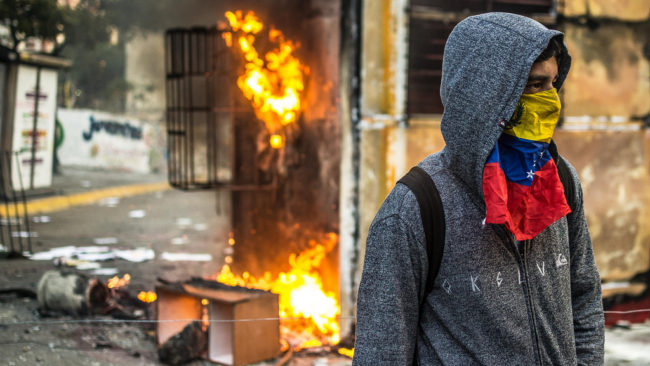The automaker General Motors (GM) has been involved in another expropriatory event, this time in Venezuela. Having also experienced expropriation attempts in Uzbekistan last year, GM has now pulled out of its operations in Venezuela following a government takeover of its plant amid large-scale violent protests.
On Thursday, GM issued a statement claiming public authorities “unexpectedly” took over its plant, prevented normal operations and illegally removed assets including vehicles. “[General Motors Venezolana] strongly rejects the arbitrary measures taken by the authorities and will vigorously take all legal actions, within and outside of Venezuela, to defend its rights,” the automaker said.
Other multinational companies that still have operations in Venezuela such as PepsiCo, Toyota, McDonald’s and Goodyear Tire & Rubber Co face similar pressures as the country’s economic and political situation worsens.
While instability in Venezuela has been growing over the course of the last 2 years, this week’s protests and violence which saw two people killed, could prove to be the final straw for the Venezuelan President Nicolás Maduro.
The most recent political controversy which set of the riots began when the country’s Supreme Court, loyal to President Maduro, temporarily rescinded the legislative powers of the opposition-led National Assembly. That decision, condemned by the U.S. Department of State as a “setback for democracy in Venezuela,” was quickly reversed following a deafening domestic and international outcry. Earlier this month Maduro’s administration also suspended the political career of one of his top rivals, opposition leader Henrique Capriles, for 15 years.
This comes in the context of an extreme economic downturn in the Country with inflation within the country having escalated more than 800 percent in 2016 and is expected to surge 720 percent this year, according to the IMF. In 2016, the Venezuelan GDP shrank more than 18 percent.
While Venezuela remains an extreme outlier in terms of economic instability, multinational companies around the world have faced an exponential rise in exporpriatory actions by foreign governments, both covert and overt. Expropriation Risk should therefore be an important part of every company’s Enterprise Risk Management system.
For more information about Expropriation Risk, Pozières Consulting Inc has published an extensive report which details how companies and investors can manage and mitigate Expropriation Risk. The Report can be found here.
